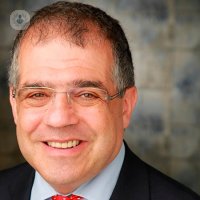Bipolar disorder treatment and living with the condition
Written by:Patients with bipolar disorder experience episodes of depression and elation (mania or hypomania). These episodes can last days, weeks or longer. In some cases, those with bipolar disorder may experience the highs and lows at the same time.
Dr Leon Rozewicz, a leading consultant psychiatrist in London, works with psychologists who offer evidence-based therapies for bipolar disorder. He shares his specialist knowledge with us and answers common questions people have regarding treatment for bipolar disorder.

What treatment options are available for people with bipolar disorder?
When treating bipolar disorder, there are psychological and pharmacological treatments. Pharmacological treatments are antipsychotics and mood stabilisers such as anticonvulsants and Lithium.
Psychological treatments include cognitive behavioural therapies, mindfulness and family therapy.
Does treatment include support regarding relationships, work and life in general?
Psychological treatment looks at problems with work and relationships.
Recognising and preventing relapse is the mainstay of psychological treatment. By talking with a psychologist patients can identify factors which trigger episodes of low or elated mood and form an understanding of how to navigate aspects of their life that may trigger a relapse.
Occasionally, couples therapy and/or family therapy may be used alongside cognitive behavioural therapy.
Are regular check-ups necessary?
Once your condition is stable, you may be asked to see your psychiatrist once every three months. Your psychiatrist will specify how frequently you should visit based on your progress.
Can bipolar disorder be cured? Do people go into remission?
Almost all people go into remission and the vast majority stay in remission for many years.
What are the signs of relapse?
When people are starting to relapse or have fully relapsed, they often notice that they:
- speak more quickly
- make unrealistic plans
- become increasingly irritable
- spend money excessively
- find it difficult to get to sleep
- eat less
Friends and family often notice signs of relapse.
What has been the most effective approach to treating bipolar disorder?
The most effective way to treat bipolar disorder is with a combination of medication and psychotherapy. Thinking holistically about triggers of relapse and how to prevent them is the most important aspect of treatment. These triggers vary from person to person. It requires a careful, detailed individual assessment.
I encourage people to maintain a healthy level of exercise and diet, and to follow the behavioural patterns they learn during cognitive behaviour therapy.
Dr Leon Rozewicz is a consultant psychiatrist with leading expertise in the management of many psychiatric conditions, including bipolar disorder. Click here to learn how he can help you.


